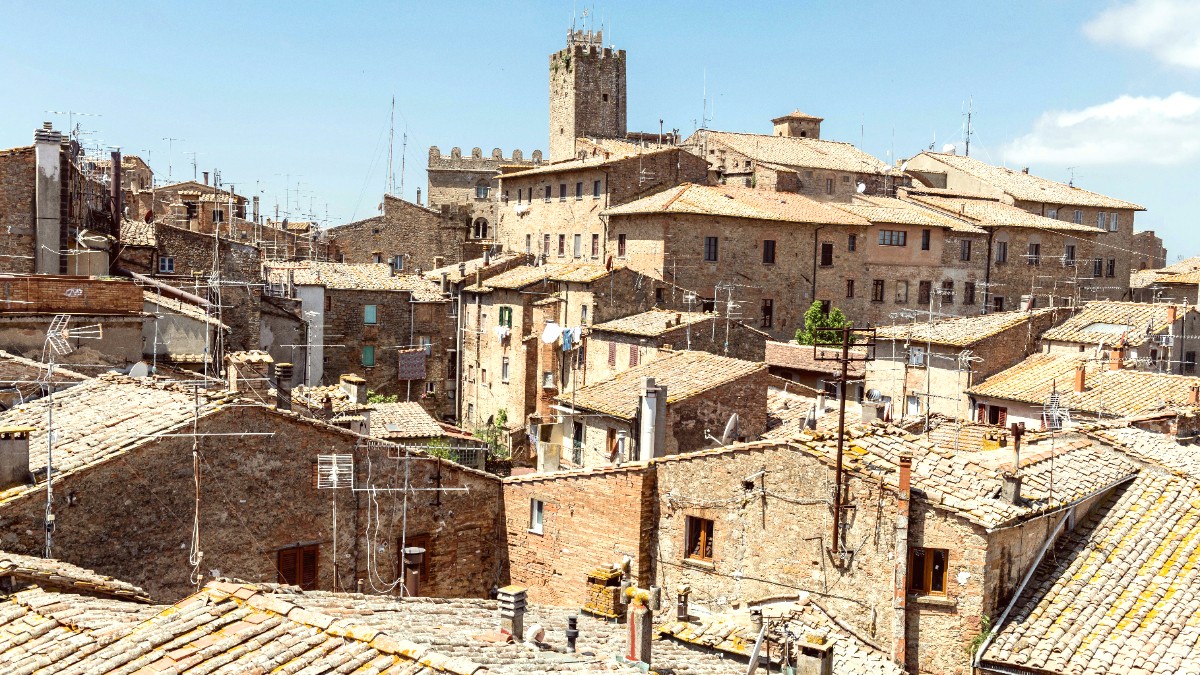
Tuscany, Italy
Volterra sees distinct seasons, each presenting a different atmosphere and set of benefits for visitors. The climate patterns throughout the year feature mild springs, hot and dry summers, pleasant autumns, and cool to cold winters.
Summers in Volterra reach high temperatures. Plan for this by wearing lightweight clothing, utilizing Sun protection, and staying hydrated. Winters generally stay mild but feel chilly and damp, especially in the evenings and mornings. Pack layers for warmth.
Travelers need valid documentation to enter Italy, part of the Schengen Area. Citizens from many countries (e.g., USA, Canada, Australia, UK) generally enter visa-free for stays up to 90 days within any 180-day period. For longer stays or specific purposes, a national visa applies through the Italian embassy or consulate.
The application process usually involves an application form, supporting documents (proof of accommodation, sufficient financial means, round-trip ticket), and biometric data. Allow sufficient processing time; apply several weeks or months before your planned travel date. Consider services like IVisa or VisaHQ for assistance.
Expect significant crowds and peak prices.
Long daylight hours for exploration.
Peak prices for lodging, flights, car rentals. Intense heat, popular restaurants may need reservations.
Most pleasant temperatures, fewer crowds.
Pleasant temperatures, fewer crowds, better prices. Blooming landscapes in spring, harvest/truffle season in autumn.
Higher rain chance, especially late spring/autumn. Some attractions may reduce hours late October.
Fewest crowds, lowest prices.
Authentic local immersion with minimal crowds. Lowest prices on accommodation and flights. Picturesque scenery if snow happens.
Colder weather, more rainfall. Outdoor activities less appealing. Shorter daylight, some businesses may close.
Italy uses the Euro (€), symbol EUR. ATMs (Bancomat) are widely available in Volterra and larger towns for cash withdrawals at competitive rates. Most major credit and debit cards (Visa, Mastercard) are accepted in hotels, restaurants, and larger shops. Carry some cash for smaller purchases or family-run establishments. Exchange offices typically offer less favorable rates. Before your trip, notify your bank of travel plans to avoid card suspension and check for any foreign transaction fees.
Tipping in Italy is not mandatory or as customary as in some other countries. In restaurants, a service charge ("coperto") or bread charge may appear on your bill. If not, rounding up the bill or leaving a few euros for good service is appreciated. For cafes/bars, no tip is expected for standing service. For table service, round up to the nearest euro. For taxis, round up. Hotel porters or housekeepers: a small tip shows appreciation. Tour guides: a small amount per person for a half-day tour, more for full-day, acknowledges good service.
€50-€90 (Hostels, street food, local buses, free attractions)
€90-€180 (Mid-range hotels, casual restaurants, occasional taxis, several paid attractions)
€180+ (High-end hotels, fine dining, private transfers, private tours)
€25-€300+
€2 (breakfast) - €100+ (fine dining)
Italy is a very safe destination; however, understanding precautions and emergency procedures is always a good practice.
No specific vaccinations are mandatory for entry to Italy from most countries, beyond your routine immunizations. Ensure your routine vaccinations are current, including Measles-Mumps-Rubella (MMR), Diphtheria-Tetanus-Pertussis, Varicella (Chickenpox), Polio, and your yearly Flu shot. Depending on your travel style and duration, Hepatitis A and B, and Rabies could be suggested. Consult a healthcare professional or travel clinic 4-6 weeks before your trip for personalized advice.
Traveler's Diarrhea: Generally a low risk. Practice good hand hygiene, drink tap water (Volterra tap water is safe), and eat well-cooked food from reputable establishments. Sunburn/Heatstroke: Particularly in summer. Use high-SPF Sunscreen, wear a Wide-brimmed hat, seek shade during the hottest parts of the day, and drink plenty of water. Insect Bites: Mosquitoes appear in warmer months. Apply Insect repellent outdoors. Foot Issues: Volterra's terrain and cobblestone streets can be hard on your feet. Wear comfortable, supportive footwear to prevent blisters and discomfort.
Memorize or save these critical numbers for immediate access. Keep copies of your passport, visa, and insurance details separate from originals and store them digitally. Inform family/friends of your itinerary.